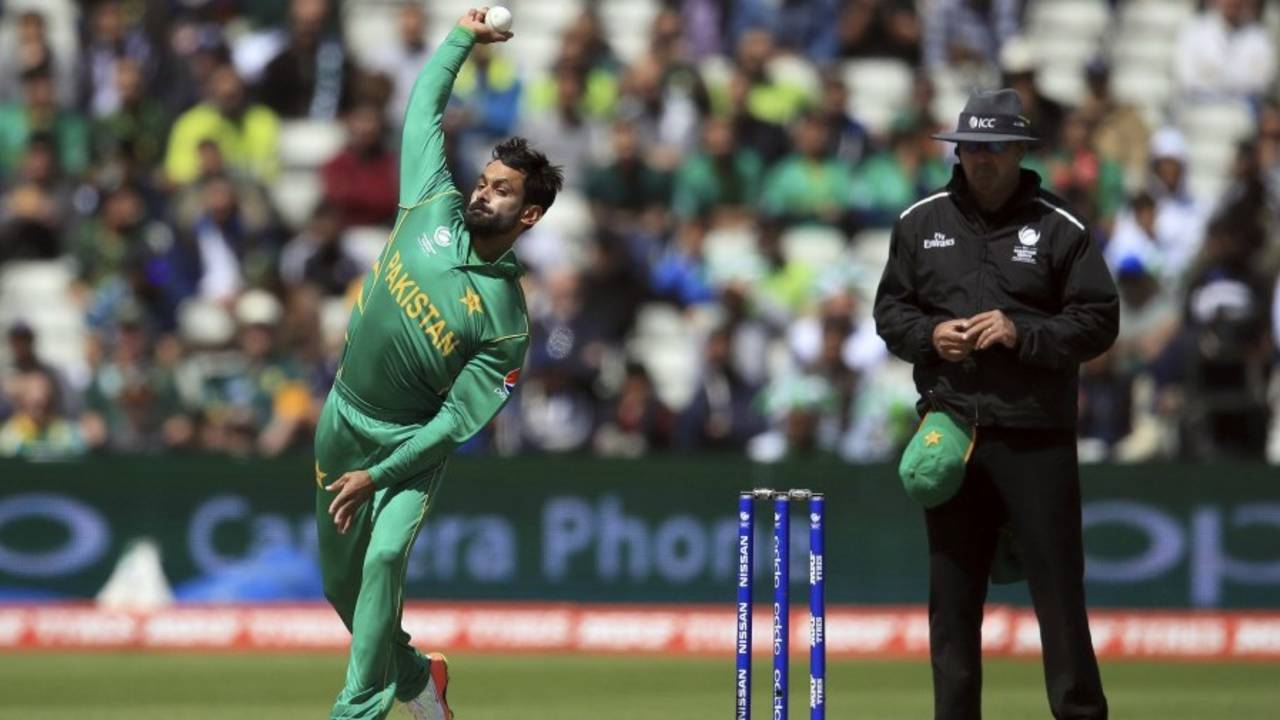Hafeez questions ICC's process for calling suspect actions
The Pakistan allrounder says he finds the way some bowlers are called for their actions "suspicious"
ESPNcricinfo staff
12-May-2018
Associated Press
A veteran now of the ICC's illegal bowling actions policy, Mohammad Hafeez is not apparently a believer in the system. Two weeks after being cleared to bowl in international cricket once again, Hafeez has raised doubts about how the ICC calls and reports bowlers with suspect actions. He said he found the way some bowlers were called for their actions "suspicious".
"There are so many things influencing all this [who gets called for suspect actions], it has a lot to do with the power of [some] boards and nobody wants to take them on," Hafeez told BBC Urdu. "Mostly there are soft corners and relations between people which no one wants to spoil. What I say is why not implement the rule and get every bowler in the world to go through [testing]. What's the difficulty in that?"
Hafeez said he was surprised when he found out, after tests, that the degree of flex in his action was only marginally above the 15-degree limit.
"When match umpires called me [for a suspect bowling action], I went for my test only to find the flex was recorded up to 16, 17 and 18 degrees," Hafeez said. "I was surprised: how can anyone with the naked eye see flex from 15 to 16, and at times they are not able to call those whose flex is 25 and even 30-plus.
"So I have my doubts about this calling system. This is suspicious, why are match referees or on-field umpires not able to see those flexing up to 35 but me with 16 degrees."
On-field umpires don't assign a figure to the flex - they only make an assessment with their naked eye on whether an action is suspect. It is only post-game testing of those deliveries they thought to be suspect that confirms whether or not the action is legal.
Hafeez was reported for a suspect action during an ODI against Sri Lanka in October last year, with an assessment at Loughborough University finding his action illegal - the third time that had happened in his international career.
He was first reported over 13 years ago during an ODI tri-series in Australia in 2005. Regulations concerning illegal actions were different back then and he soon returned. In 2014, his action was reported during the Champions League T20, and then again following a Test match against New Zealand later that year. Having twice been found over the legal limit for elbow extension in that short period, Hafeez was banned from bowling for 12 months. He returned to after undergoing remedial work on his action once again only for this latest episode to restart the cycle.
Over the years Hafeez has always been sceptical after being reported for his action, often remaining adamant about any flaw in his action.
